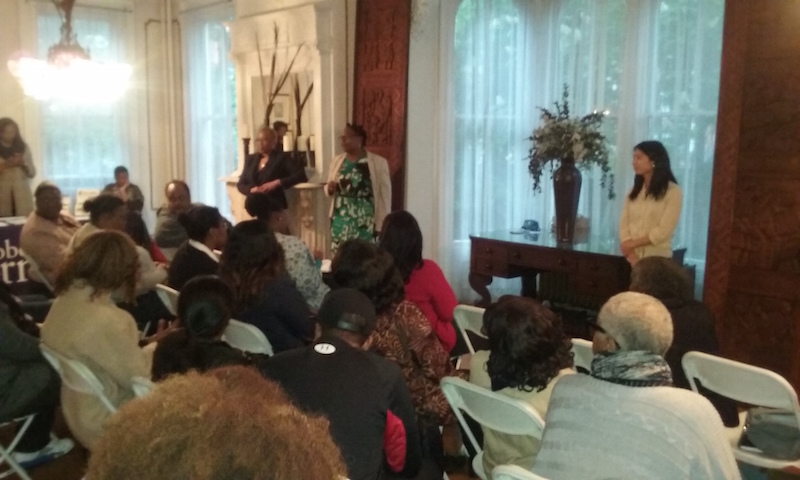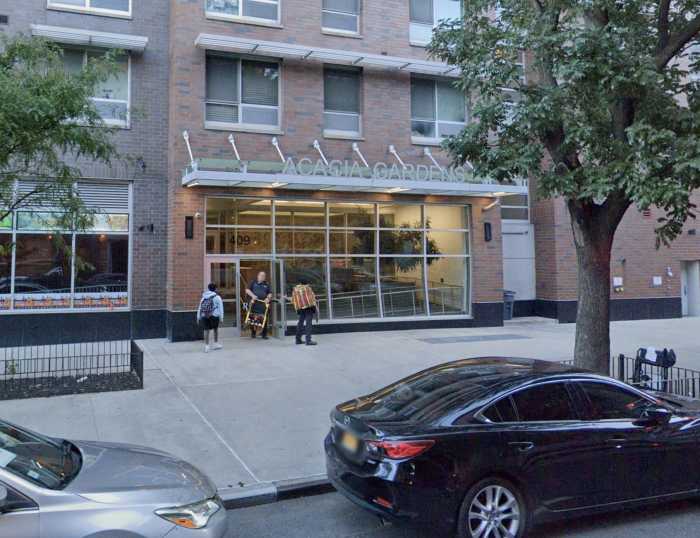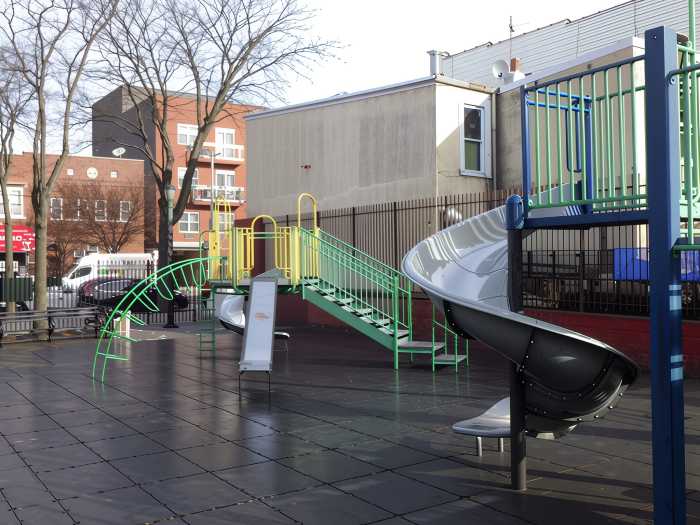About 30 seniors gathered last week at the Akwaaba Mansion on McDonough Street in Stuyvesant Heights to hear about a new program that will help senior homeowners better manage their bills, allow for more senior housing and allow for many longtime residents to stay in the neighborhood that they love and live in.
The state and city-funded program is called Home Sharing, which matches senior citizens with comparable persons of any age in shared living arrangements in homes throughout the city. The program is a unique and affordable housing option that is working in other Brooklyn neighborhoods such as Sheepshead Bay, which like Bed-Stuy has a large and growing Naturally Occurring Retirement Community (NORC).

“Bedford Stuyvesant takes pride in its status as an Age Friendly Neighborhood and our goal is to insure that seniors can age in place. In today’s economy, many Seniors in the community live on a fixed income and cannot afford the increasing rents,” said City Councilman Robert Cornegy Jr. “By implementing programs such as Home Sharing, we create more affordable housing options in an environment that addresses the socioeconomic needs of seniors, contributes to their overall quality of life and improves our community as a whole.”
Housing is an issue in the neighborhood, especially for seniors. A lot of seniors lost their homes to foreclosures, and a lot don’t rent out rooms because of fear,” explained Stefani Zinerman Chief of Staff for City Councilman Robert Cornegy Jr., whose office sponsored the forum on the Home Sharing Program. “Older people shouldn’t be in shelters or homeless.”
Zinerman explained that there are a growing number of seniors that are longterm residents that want to stay in the neighborhood that they’ve called home for may years, and at the same time there are a number of homeowners that are also seniors and whose children moved away, but are more comfortable living in Bed-Stuy where they have planted down roots.
“This is the a type of housing to explore if we want to keep our seniors in the neighborhood,” she said, adding Home Sharing provides companionship, which leads to a longer life, helps with financial burdens and relieves feelings of loneliness.
The way the program works is the non-profit New York State Foundation for Senior Citizens (NYSFSC) links prospective adult “hosts,” who have a private bedroom available within their homes with appropriate adult “guest” to share their space.
One of the “matchmates” must be age 60 or over. The program also serves adult hosts age 55 and over, who are interested in sharing their homes with developmentally disabled adult “guest” capable of independent living.
The NYSFSC provides professional social work staff that does comprehensive confidential screening and matching services that includes among other things employment history, medical and mental health history. Once the match is made, the staff assists with the negotiated shared living arrangements, in which the host can’t ask for more than half of what they pay for monthly living expenses, but other than that everything is negotiable.
If things don’t work out the host must give the guest a 30-day notice. There is no charge for the Home Sharing program’s matching service.
Following the presentation, all the participants went around the room and introduced themselves. Several were senior homeowners with rooms to share that wanted to stay in the neighborhood and mentioned the need to share expenses and have a little companionship.
Others were elderly and still active that need a place to live and were willing to take out the garbage and do other chores plus pay some rent. Several people on hand actually started the beginnings of what looked like a good match.
For further information on the Home Sharing Program visit www.nyfsc.org or call (212) 962-7559.










